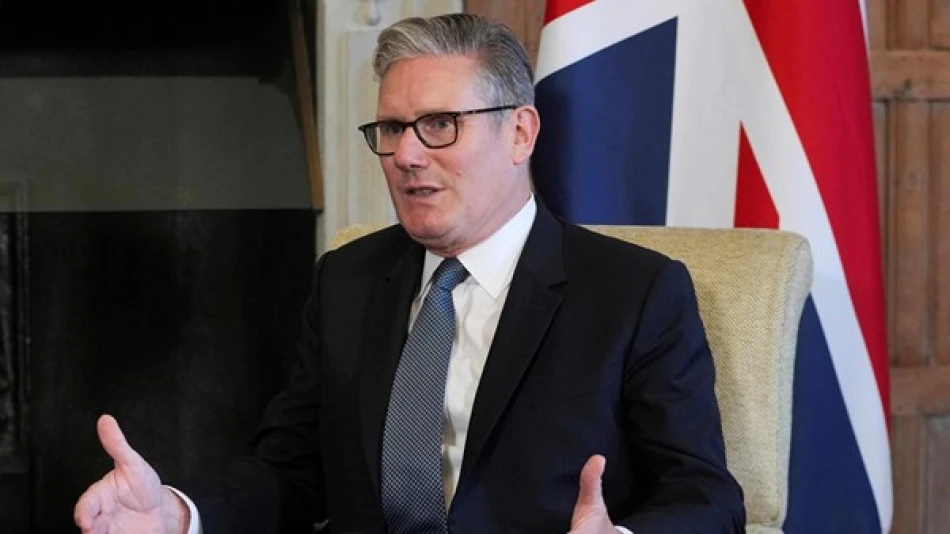
UK, France, and Germany Hold Talks to Address Gaza Crisis
European Powers Call Emergency Gaza Summit as Starmer Links Ceasefire to Palestinian Statehood
British Prime Minister Keir Starmer announced urgent trilateral talks between the UK, France, and Germany for Friday, describing Gaza's humanitarian crisis as "indescribable and indefensible." In a significant diplomatic shift, Starmer explicitly connected any future ceasefire to progress toward recognizing Palestinian statehood, signaling Europe's growing impatience with the status quo.
The E3 Takes Center Stage
The emergency consultation between Europe's three largest powers—known as the E3—represents a notable escalation in European diplomatic engagement. Starmer's statement emphasized the urgency of stopping "the killing" and delivering desperately needed food aid to Gaza's population.
This coordinated approach reflects Europe's attempt to carve out an independent diplomatic role, particularly as traditional US-led mediation efforts have stalled. The timing suggests European leaders believe the humanitarian situation has reached a tipping point that demands immediate intervention.
Linking Ceasefire to Statehood Recognition
Starmer's most significant statement came in connecting any future Gaza ceasefire to Palestinian statehood recognition—a linkage that marks a clear departure from previous Western diplomatic approaches that treated these issues separately.
A Strategic Shift in European Policy
This explicit connection represents a calculated pressure tactic aimed at both parties in the conflict. By making statehood recognition conditional on achieving a ceasefire, European leaders are essentially offering a concrete political incentive for ending hostilities while simultaneously raising the stakes for all involved parties.
The approach mirrors successful diplomatic frameworks used in other conflicts, where recognition of political aspirations became part of peace negotiations rather than their distant outcome.
Europe's Growing Diplomatic Independence
The E3's coordinated response demonstrates Europe's increasing willingness to pursue independent Middle East diplomacy. Unlike previous crises where European nations largely followed US leadership, this initiative positions the trio as autonomous actors with their own strategic priorities.
This shift reflects broader European concerns about regional stability, refugee flows, and economic impacts—factors that affect Europe more directly than the United States. The humanitarian focus also aligns with European public opinion, which has grown increasingly critical of the conflict's civilian toll.
Implications for Regional Dynamics
The European intervention could reshape regional diplomatic calculations in several ways. For Palestinian leadership, it offers a potential pathway to international recognition that doesn't rely solely on US mediation. For Israel, it presents both pressure and opportunity—pressure to engage seriously with ceasefire proposals, but also a potential avenue for normalized relations with major European powers.
The timing also coincides with broader regional realignments, including ongoing normalization efforts between Israel and Arab states, making European recognition of Palestinian statehood a potentially valuable diplomatic currency in future negotiations.
Challenges Ahead
Despite the diplomatic momentum, significant obstacles remain. The E3 lacks the military and economic leverage that traditionally drives Middle East peace processes. Their influence depends largely on moral authority and the promise of future economic and political benefits.
Moreover, any European initiative must ultimately coordinate with US policy to avoid undermining broader Western diplomatic coherence. The success of Friday's talks will likely depend on whether the three powers can translate their humanitarian concerns into concrete proposals that address both immediate crisis management and longer-term political solutions.
Most Viewed News

 Layla Al Mansoori
Layla Al Mansoori






